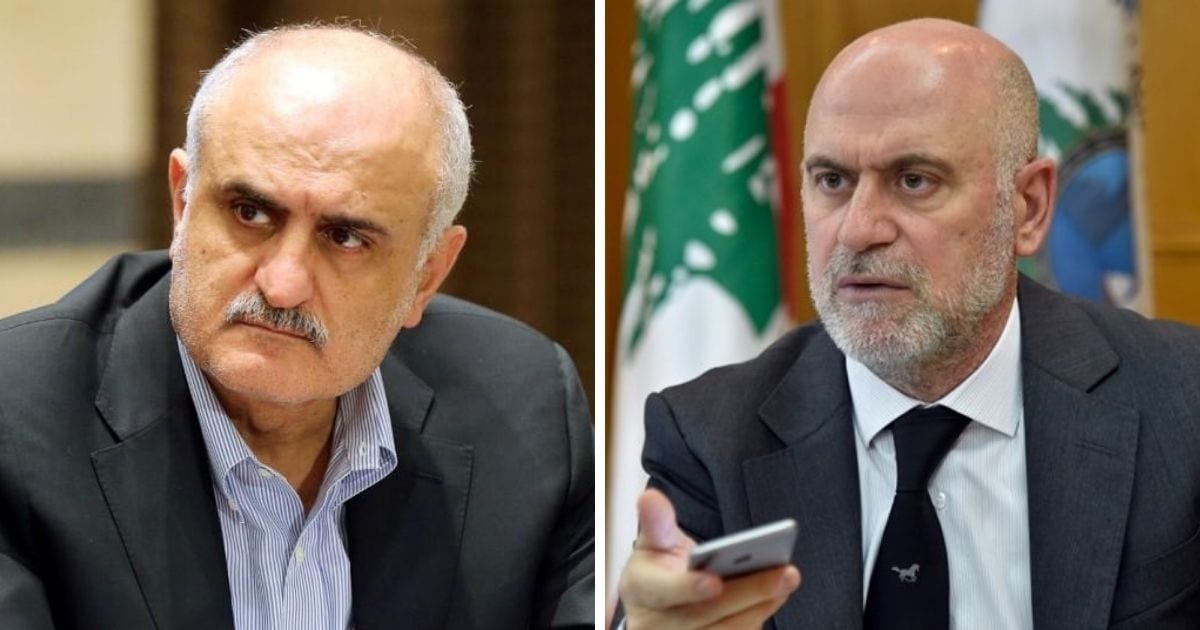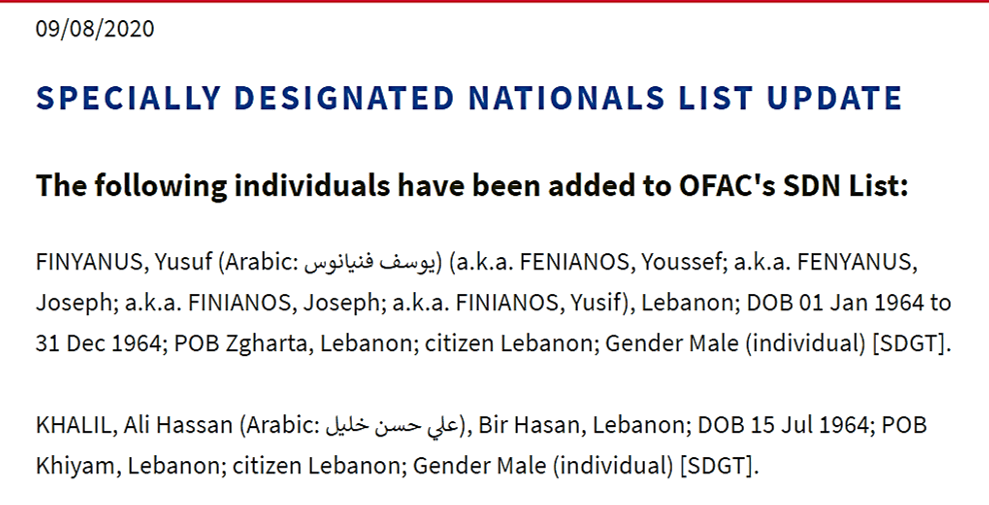On Tuesday, the United States blacklisted two former Lebanese ministers, Ali Hassan Khalil and Youssef Fenianos.
The U.S. just imposed the sanctions, accusing both Lebanese officials of engaging in corruption and providing material support to Hezbollah, which the U.S. has labeled as a terrorist organization.
“These designations underscore how some Lebanese politicians have conspired with Hezbollah at the expense of the Lebanese people and institutions,” said the statement issued by the U.S. Department of the Treasury.
Former Finance Minister Khalil is linked to Nabih Berri’s Amal party while former Transportation and Public Works Minister Fenianos is a member of Sleiman Frangieh’s Marada Movement.
The U.S. Treasury accuses Khalil of “exchanging Hezbollah’s political support for his position to aid the group, including helping its agents evade U.S. sanctions.”
The U.S. has been warning about sanctions that will target allies of Hezbollah as it continues to target and corner in on the militant group.
“Hezbollah leveraged relationships with Lebanese officials to channel government funds to Hezbollah-owned companies through government contracts worth millions of dollars, including allegedly giving Fenianos hundreds of thousands of dollars in exchange for political favors,” reported The Wall Street Journal.
Furthermore, the US revealed that Fenianos had regular meetings with Wafiq Safa, a Hezbollah security apparatus leader who was previously sanctioned by the U.S. Treasury in 2019 and is alleged to have control over Lebanon’s borders and ports.
Western officials maintain that corruption has caused Lebanon’s economy to collapse, in addition to creating conditions that allowed the Beirut explosion to occur, which includes the weak oversight of infrastructure by the Lebanese government.
The U.S. Administration officials also issued that the expanding influence of Hezbollah within the country’s political system and economy has contributed to corruption.
This step by the United States is expected to be the first of a possible wave of sanctions to be imposed on corrupt Lebanese politicians.
“The United States supports the people of Lebanon in their demands for reform and will continue to use all means at their disposal to target those who oppress and exploit them,” warned the U.S. Secretary of the Treasury Steven T. Mnuchin.
At last, both Khalil and Fenianos are reportedly among the many Lebanese politicians who knew about the ammonium nitrate stored in the port of Beirut that led to the massive disaster the Lebanese people are currently enduring.

